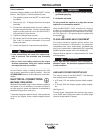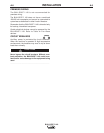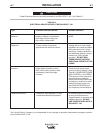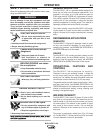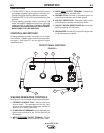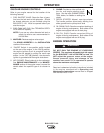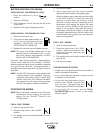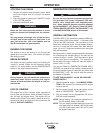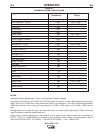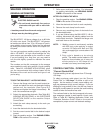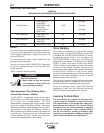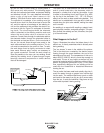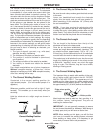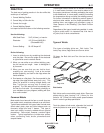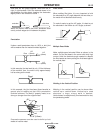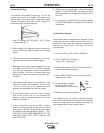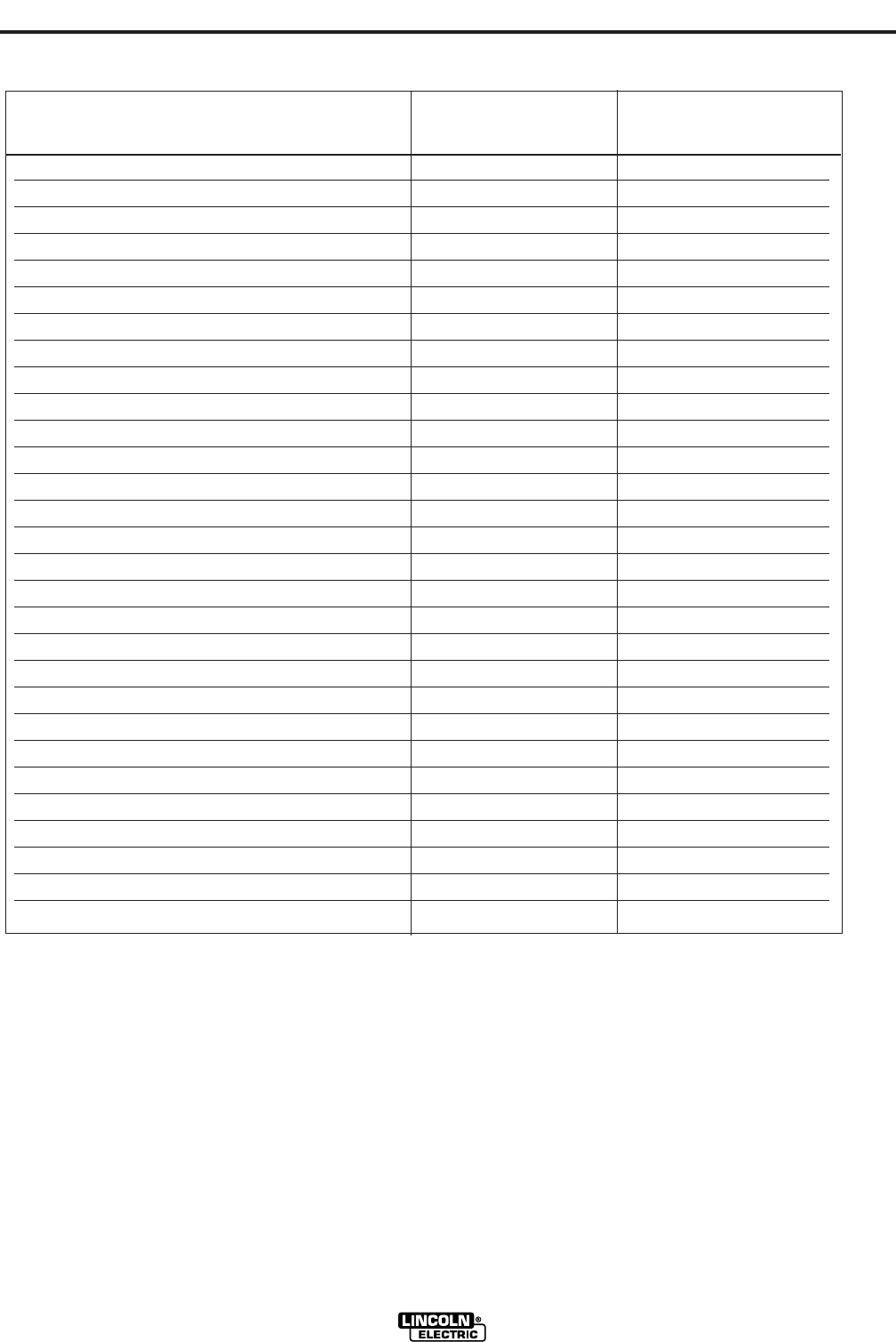
TABLE B.1
GENERATOR POWER APPLICATIONS
Suggested Power Applications Running Watts *Start-up Watts
(Continuous) (Surge)
*Air Compressor - 1 HP 2,000 4,000 - 8,000
*Air Compressor - 3/4 HP 1,250 3,100 - 5,000
*Airless Sprayer - 1/3 HP 600 1,500 - 2,400
Chain Saw 1,200
Circular Saw 1,200
Coffee Maker 1,000
*Deep Freezer 500 750 - 2,000
*Electric Motor - 1 HP 1,000 2,500 - 4,000
Electric Range (1 element) 1,500
Electric Skillet 1,250
*Furnace Fan - 1/3 HP 1,200 3,000 - 4,800
Portable Grinder (4 1/2”) 600
Portable Grinder (7”) 2,000
Halogen Work Light 500
Hand Drill - 1/4” 500
Hand Drill - 3/8” 700
1500 Watt Heater 1,500
Hedge Trimmer 450
Light Bulb 100
Reciprocating Saw 900
Radial Arm Saw 2,600
Radio 50
*Refrigerator/Freezer (small) 600 1,500 - 2,400
Slow Cooker 200
*Submersible Pump - 1 HP 1,000 2,500 - 4,000
*Sump Pump 600 1,500 - 2,400
Toaster 1,100
Weed Trimmer 500
Lincoln Wire Feeder/Welder 4,000
B-6
OPERATION
B-6
BULLDOG™ 140
NOTES:
Wattages listed are approximate. Check your equipment for actual wattage.
Equipment with unusually high *START-UP WATTS are listed. For start-up of other tabled equipment that uses a
motor, allow up to 2 times the running watts shown above. For example a 1 HP motor requires approximately
1000 watts of power when running but may require (2.5 X 1000) = 2500 watts or (4.0 X 1000) = 4000 watts to
start.
Multiple loads can be used as long as the total load does not exceed 5,500 surge watts or 4,000 continuous
watts. Be certain to start the largest loads first.
Output rating in watts is equivalent to volt-amperes at unity power factor (resistive load) and is calculated as:
WATTS = VOLTS X AMPS DRAWN. for example a 120 volt device which is rated on its nameplate to draw 2
amps will need (120 VOLTS) X (2 AMPS) = 240 WATTS OF POWER. 1 KW = 1000 WATTS.



